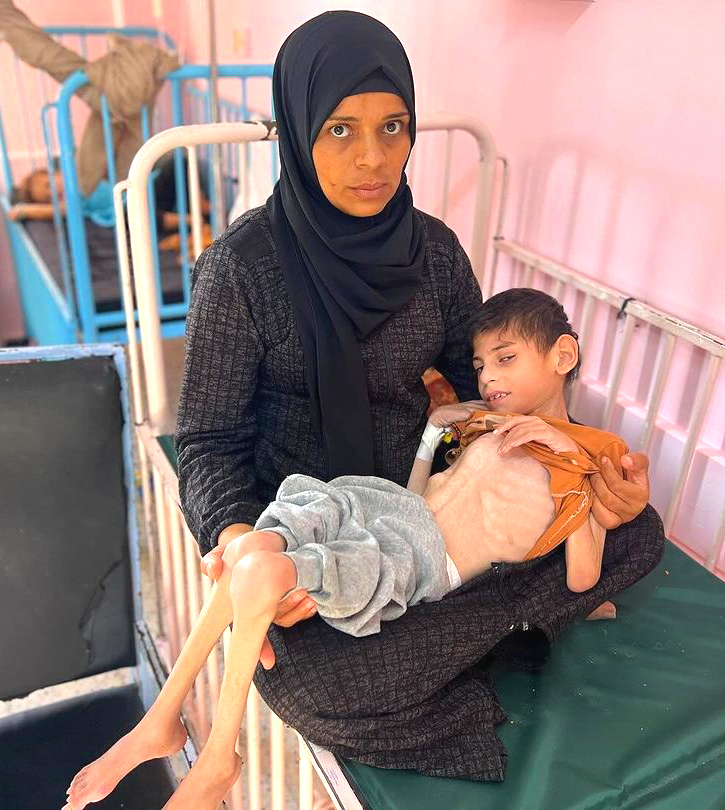
THE UN Children’s Fund (UNICEF) has accused Israel of obstructing the entry of essential supplies needed to save the lives of children suffering from severe malnutrition in the Gaza Strip.
UNICEF spokesman Ricardo Pires told a news conference in Geneva yesterday that 938,000 bottles of ready-to-use infant formula have been held up since August.
Pires said Israeli restrictions on critical humanitarian items such as maternity kits, solar-powered refrigerators, spare parts, generators and water purification materials severely impede relief efforts in the besieged enclave.
Pires noted that while the overall volume of humanitarian aid entering Gaza has increased in recent weeks reaching 5,500 truckloads between October 12 and November 10, many life-saving supplies remain blocked.
He said that UNICEF, in cooperation with the World Health Organisation (WHO) and partner organisations, had delivered one million doses of vaccines to Gaza to protect children from polio, measles and pneumonia.
A vaccination campaign has been launched to reach more than 40,000 children under the age of three who missed routine immunisations over the past two years due to the war.
Pires affirmed that around 2,400 children were vaccinated on the first day of the campaign last Sunday.
He reiterated that improving the humanitarian situation in Gaza requires the unhindered entry of all essential supplies, warning that continued restrictions would endanger the lives of thousands of children.
‘Sustaining the flow of aid is the only way to save lives and restore hope for Gaza’s children,’ he said.
Zikim crossing, the main entry point into the devastated northern Gaza Strip, has been reopened to allow the flow of humanitarian aid into the region, according to Israeli officials.
The announcement on Wednesday came two months after Israel shut the crossing, and followed repeated calls from United Nations aid agencies to allow aid to flow directly into the hard-hit northern part of Gaza.
Under the ceasefire brokered by the United States, which took effect on October 10, aid deliveries were to be significantly ramped up, with at least 600 trucks a day supposed to enter the Strip.
But volumes have been much less than that, and the UN has warned that the hunger crisis in Gaza remains catastrophic, as aid convoys to the north, where famine was declared in August, face a slow and difficult route from the south.
- Israeli warplanes launched three air raids on the city of Beit Lahiya in the north of the Gaza Strip yesterday, while an area east of the Jabalia refugee camp, also in the north, was targeted with Israeli artillery shelling.
• See feature on horrific testimonies of Palestinian prisoners in israeli jails